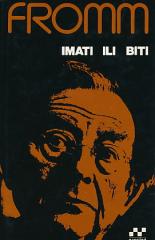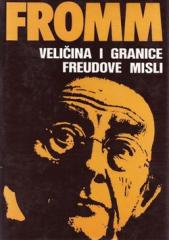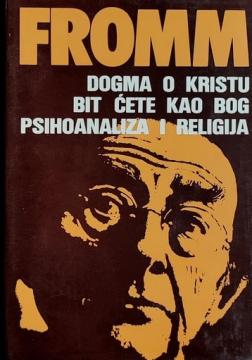
Dogma o Kristu / Bit ćete kao Bog / Psihoanaliza i religija
In these works, Fromm explores religion as a psychological and social phenomenon. He criticizes authoritarian religions and advocates a humanistic approach to faith that encourages freedom, growth, and inner responsibility.
The Dogma of Christ In this work, Fromm analyzes the early Christian text known as The Dogma of Christ, viewing it through a socio-psychological and Marxist prism. He argues that the early Christians were not only a religious movement, but also a social movement of the oppressed. Christ is a symbol of hope, liberation, and equality, while the later development of the Church – through institutionalization and dogmatization – loses the revolutionary spirit of the gospel. Fromm believes that the original message of Jesus was radical and humanistic, but that over time it has been transformed into a means of control, thus suppressing the true power of spiritual freedom.
You Will Be Like God The title of this book refers to a biblical sentence from Genesis. Through this phrase, Fromm develops the thesis that religious thought can be liberating, not repressive. He analyzes Jewish and Christian theology, emphasizing the difference between an authoritarian and a humanist approach to God. In a humanist religion, God is not an external authority, but a symbol of the highest human potential. Human maturity lies in self-development, moral autonomy and responsibility, not in blind obedience. The goal of the spiritual path is to become a free and complete being – "like God", but without arrogance, but with love and awareness.
Psychoanalysis and Religion Here Fromm analyzes the relationship between religion and psychoanalysis, emphasizing that both can have a constructive and destructive function. He criticizes authoritarian religion as a source of neurosis, because it encourages fear, guilt and submission. However, religion in the humanistic sense can be a source of inspiration, ethical growth and psychological health. Fromm distinguishes "religiosity" as a universal human need for meaning, connection and values from "faith" as an organized doctrine. Psychoanalysis and religion are not opposed if their common goal is a free, conscious and mature person.
A copy is available as part of the book set "Erich Fromm: Djela 1-12"
Browse the set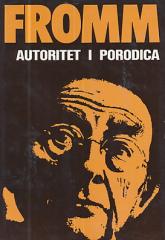
1. Autoritet i porodica
In his work "Authority and Family", Erich Fromm analyzes the transformation of authority and family in modern society. The foreword was written by Gvozden Flego, and the book also contains the study "Revolutionary Character".
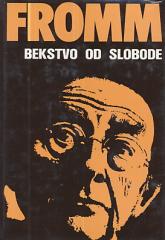
2. Bekstvo od slobode
In the work "Escape from Freedom" (1941), Erich Fromm analyzes the psychological and social effects of the modern concept of freedom.
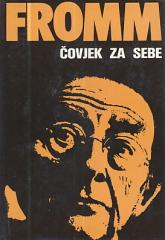
3. Čovjek za sebe - Istraživanje o psihologiji etike
In the book "Man for Himself", Erich Fromm develops the idea of humanistic ethics as opposed to authoritarian and relativist ethics.
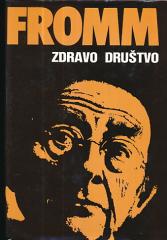
4. Zdravo društvo
In his book "The Healthy Society," Erich Fromm explores what makes a society psychologically healthy and what makes it unhealthy. The book represents the crowning achievement of Fromm's social and political philosophy, in which he favors a so-called human
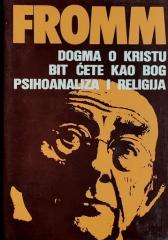
5. Dogma o Kristu / Bit ćete kao Bog / Psihoanaliza i religija
In these works, Fromm explores religion as a psychological and social phenomenon. He criticizes authoritarian religions and advocates a humanistic approach to faith that encourages freedom, growth, and inner responsibility.
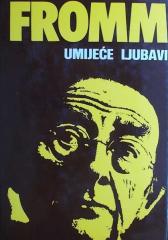
6. Umijeće ljubavi
In "The Art of Loving," Fromm argues that love is an art that requires knowledge, effort, and practice, not just an emotion or a random occurrence. In modern society, people often understand love as an object to be "found," rather than as a skill to be de
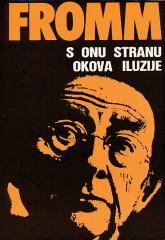
7. S onu stranu okova iluzije: Moj susret s Marxom i Freudom
In the autobiographical-philosophical work "Beyond the Chains of Illusion", Erich Fromm depicts his own intellectual development through his encounter with the ideas of Karl Marx and Sigmund Freud.
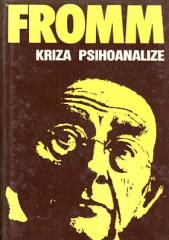
8. Kriza psihoanalize - Analitička socijalna psihologija i društvena teorija
In the book, Fromm presents a strong critique of contemporary psychoanalysis. He believes that psychoanalysis has moved away from Freud's initial revolutionary vision and has turned into a technical, often sterile system that ignores deeper human and soci
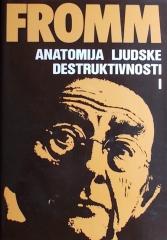
9. Anatomija ljudske destruktivnosti 1
In this classic study from 1973, Erich Fromm explores in depth the roots of human destructiveness. The book is not only a critique of violence, but a broad analysis of how biological, psychological and social factors shape our propensity for destruction.
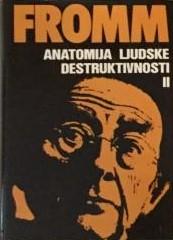
10. Anatomija ljudske destruktivnosti 2
In this classic study from 1973, Erich Fromm explores in depth the roots of human destructiveness. The book is not only a critique of violence, but a broad analysis of how biological, psychological and social factors shape our propensity for destruction.
